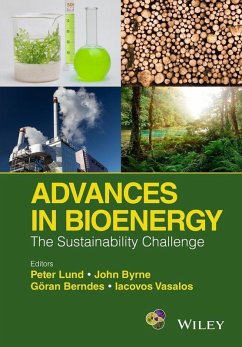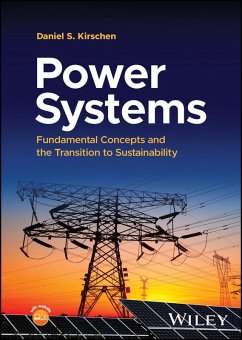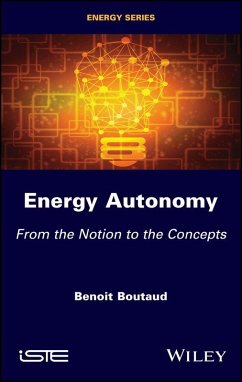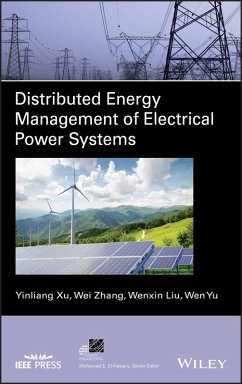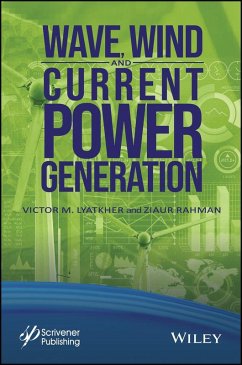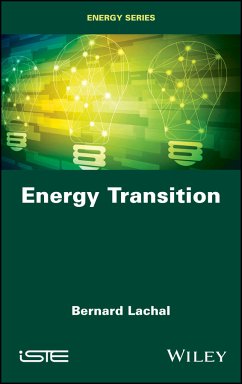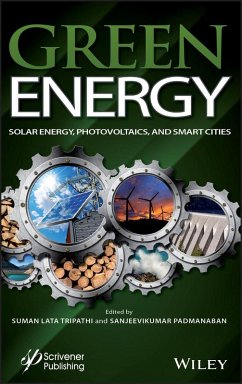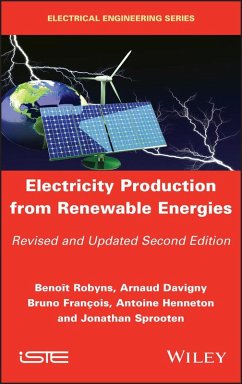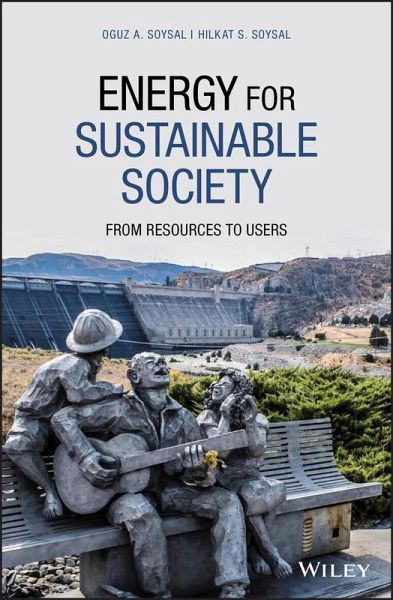
Energy for Sustainable Society (eBook, PDF)
From Resources to Users
Versandkostenfrei!
Sofort per Download lieferbar
114,99 €
inkl. MwSt.
Weitere Ausgaben:

PAYBACK Punkte
0 °P sammeln!
A handbook of sustainable energy, covering entire energy aspects from present status to future alternatives under one umbrellaThis book takes an interdisciplinary system approach to evaluating energy systems so that readers can gain the necessary technical foundation to perform their own performance evaluations and understand their interactions with socioeconomic indicators. Topics include the current and future availability of primary sources, energy supply chain, conversion between different forms of energy, security of energy supply, and efficient end-use of energy sources. Each chapter pro...
A handbook of sustainable energy, covering entire energy aspects from present status to future alternatives under one umbrella
This book takes an interdisciplinary system approach to evaluating energy systems so that readers can gain the necessary technical foundation to perform their own performance evaluations and understand their interactions with socioeconomic indicators. Topics include the current and future availability of primary sources, energy supply chain, conversion between different forms of energy, security of energy supply, and efficient end-use of energy sources. Each chapter provides readers with comprehensive background information, an outline of the current technologies, and potential future developments. The book also examines the global, economic, societal, ethical, and environmental issues associated with currently used energy technologies.
Energy for Sustainable Society: From Resources to Users starts with ageneral overview of energy systems, and describes the major elements of energy transformation and supply chain. It then discusses interdisciplinary career opportunities in the ¿energy engineering¿ field. The fundamental concepts of energy conversion, transmission, and load flow in electrical systems are covered, as are conventional and unconventional fossil fuels, and the basics of nuclear power generation and reactor types. Other chapters look at: the fundamental concepts of thermodynamics and basic operation of steam turbines, gas turbines, and combined cycle heat engines used in fossil fuel and nuclear power plants; current technologies in hydroelectric power generation; renewable and alternative energy sources; energy security issues; and more.
Energy for Sustainable Society gives readers a solid foundation to study energy related subjects and is an ideal book for a first course on energy systems for upper division undergraduate and first year graduate students.
This book takes an interdisciplinary system approach to evaluating energy systems so that readers can gain the necessary technical foundation to perform their own performance evaluations and understand their interactions with socioeconomic indicators. Topics include the current and future availability of primary sources, energy supply chain, conversion between different forms of energy, security of energy supply, and efficient end-use of energy sources. Each chapter provides readers with comprehensive background information, an outline of the current technologies, and potential future developments. The book also examines the global, economic, societal, ethical, and environmental issues associated with currently used energy technologies.
Energy for Sustainable Society: From Resources to Users starts with ageneral overview of energy systems, and describes the major elements of energy transformation and supply chain. It then discusses interdisciplinary career opportunities in the ¿energy engineering¿ field. The fundamental concepts of energy conversion, transmission, and load flow in electrical systems are covered, as are conventional and unconventional fossil fuels, and the basics of nuclear power generation and reactor types. Other chapters look at: the fundamental concepts of thermodynamics and basic operation of steam turbines, gas turbines, and combined cycle heat engines used in fossil fuel and nuclear power plants; current technologies in hydroelectric power generation; renewable and alternative energy sources; energy security issues; and more.
- Contains up-to-date information on renewable energy technologies such as grid-tie, net-zero energy, battery backup, and utility-independent micro grids
- Presents the status of the share of renewable sources in the current and future energy supply mix
- Provides solved examples, case studies, self-assessment quizzes, and problems to enhance the understanding of readers
- Includes an exclusive chapter on energy security issues
Energy for Sustainable Society gives readers a solid foundation to study energy related subjects and is an ideal book for a first course on energy systems for upper division undergraduate and first year graduate students.
Dieser Download kann aus rechtlichen Gründen nur mit Rechnungsadresse in D ausgeliefert werden.





